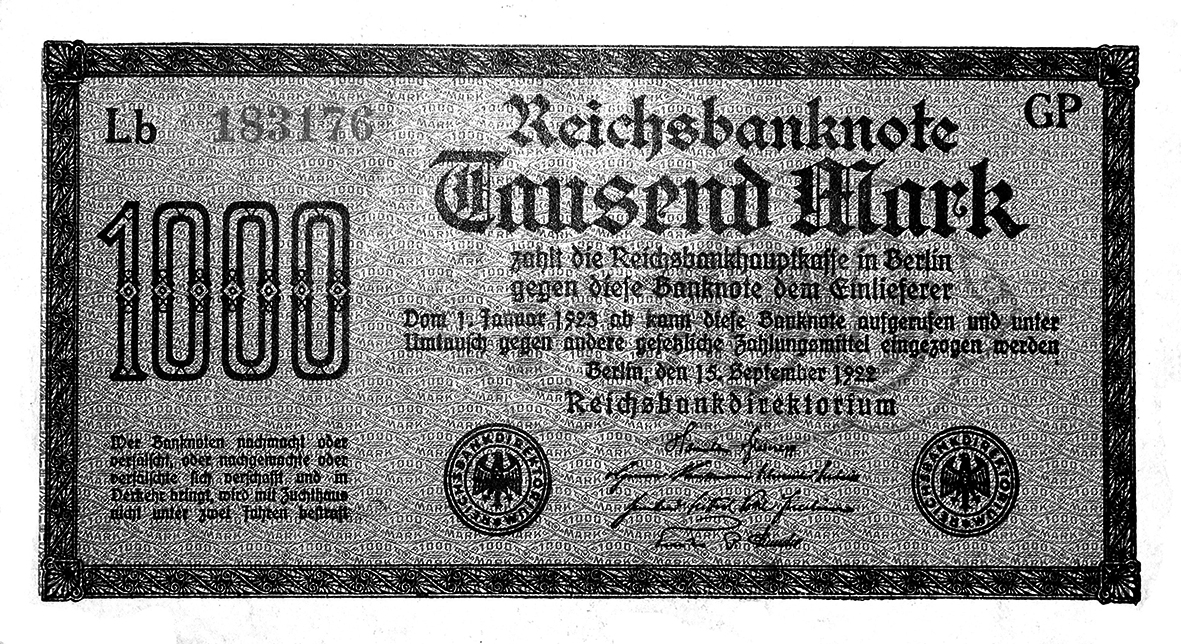Existential fear.
LEONHARD WEISS in the Great Depression.
Göppingen, October 1931. Leonhard Weiß is buried under a mountain of bills - and worries. His business has been at a standstill since that month, and his debts are mounting. He is now in a position where he can neither pay his taxes nor meet the demands of the Göppingen business bank. Then there is an unpaid hospital bill of around 1,000 Reichsmarks. One of his daughters had to undergo two operations. It is probably the darkest hour in his life as a builder. But giving up is not an option for him.
Since the panic on the New York Stock Exchange exactly two years ago, on 24 October 1929, the whole world seems to have turned upside down. In Europe, too, the stock markets collapsed. Many fortunes were wiped out and companies everywhere were declaring bankruptcy. In the cities, the permanently unemployed walk around holding up signs saying 'Will take any job'. And Germany's first parliamentary democracy, the Weimar Republic, can only be kept going by emergency laws. The government is trying to tackle the global economic crisis with tough austerity measures - raising taxes and cutting government spending. For Leonhard Weiß, a building contractor who gets 90 per cent of his work from the public sector, this is disastrous. How long can he hold out? This is a question that Leonhard and Ottilie Weiß keep asking themselves.
Leonhard Weiß has a family with four minor children and a father living at home. He has already tried to make money from a track curve he developed and patented in several countries. He wanted to rent out land, sell tools and apply to larger companies at home and abroad. All in vain. In the end, Leonhard Weiß was even prepared to sell his company - all to no avail.
In October 1931, he finally asked the tax office to waive the outstanding amounts. The German economy remained in the doldrums. In 1932, unemployment rose to a record high of 5.6 million. With no reserves to finance orders, Leonhard Weiß was unable to bid for contracts. He negotiated with his creditors, who continued to trust him because of his impeccable reputation as a businessman. My situation today is such that I don't know how I will be able to obtain the means for my bare subsistence,' he wrote in his application to the tax authorities.
In 1932, LEONHARD WEISS was practically bankrupt. And yet there was a glimmer of hope. There were many signs that the economic crisis had bottomed out. In the summer, the reparations imposed by the Treaty of Versailles, which the government saw as the biggest obstacle to economic recovery, were lifted. Shortly afterwards, economic indicators began to point upwards. However, the political situation also came to a head. There was massive street terror by SA troops. On 30 January 1933, President Paul von Hindenburg appointed Adolf Hitler as Chancellor.
Leonhard Weiß viewed the 'seizure of power' with great scepticism, but was nevertheless pleased to be able to return to building sites. The economic upturn that was already underway, combined with the National Socialists' employment programmes, led to a boom in the construction industry. Leonhard Weiß was soon able to pay off his debts, but he didn't have a chance to catch his breath. The years of existential fear, during which he had barely kept his company afloat, were still weighing on him. Even when the order books were full again.
